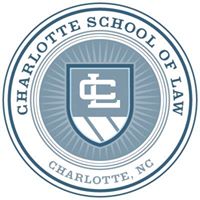All InfiLaw suits against the ABA appear to be headed to resolution

Charlotte School of Law filed a motion Tuesday to dismiss, with prejudice, its lawsuit against the American Bar Association.
The school is one of three law schools owned by the for-profit InfiLaw Corp., an entity of the private equity firm Sterling Capital Partners. Each school sued the ABA in May 2018, alleging that their due process rights were violated when the council of the Section of Legal Education and Admissions to the Bar either placed the schools on probation or issued public notice regarding accreditation compliance.
Of the other two lawsuits, Arizona Summit Law School’s action settled in January, and in February, Florida Coastal School of Law with the ABA filed a joint stipulation motion asking that the suit be dismissed with prejudice.
Of the three InfiLaw schools, Florida Coastal is the only one that has not been placed on probation or operating under a teach-out plan. In October 2017, it was found to be “significantly out of compliance” with various ABA accreditation standards. With the exception of an admissions standard, the council affirmed the finding in April 2018. The next council hearing is scheduled in May, Scott DeVito, dean of Florida Coastal, said earlier this year.
In a statement, Barry Currier, the ABA’s managing director of accreditation and legal education, said he was pleased that Charlotte School of Law and the InfiLaw Corp. have unilaterally dropped their lawsuit against the ABA.
“With this and related cases now closed, it is important to note that the ABA accreditation process provides meaningful opportunities for every law school to establish that it is operating in compliance with the accreditation standards,” he said. “Through these opportunities, the great majority of law schools do, in fact, establish that they are operating in compliance with those standards. Courts, meanwhile, have regularly upheld the ABA’s law school accreditation process.”
An attorney for Charlotte School of Law was not available at press time. The school was placed on probation by the council in October 2016, for being out of compliance with various admissions and program accreditation standards. Two months later, Charlotte School of Law lost its federal student aid after the Department of Education found that the school was not honest with students about its ABA accreditation issues.
The law school closed in August 2017, after the council rejected a teach-out plan that the school submitted.
Also, in March, former Charlotte School of Law students filed two lawsuits in Illinois state court against Sterling Capital Partners. The two complaints allege consumer fraud and deceptive business practices, and they seek tuition reimbursement.
Christopher Bagley, a North Carolina lawyer who represents the Illinois plaintiffs, told the ABA Journal that he and other plaintiffs counsels also represent former students at Arizona Summit.



